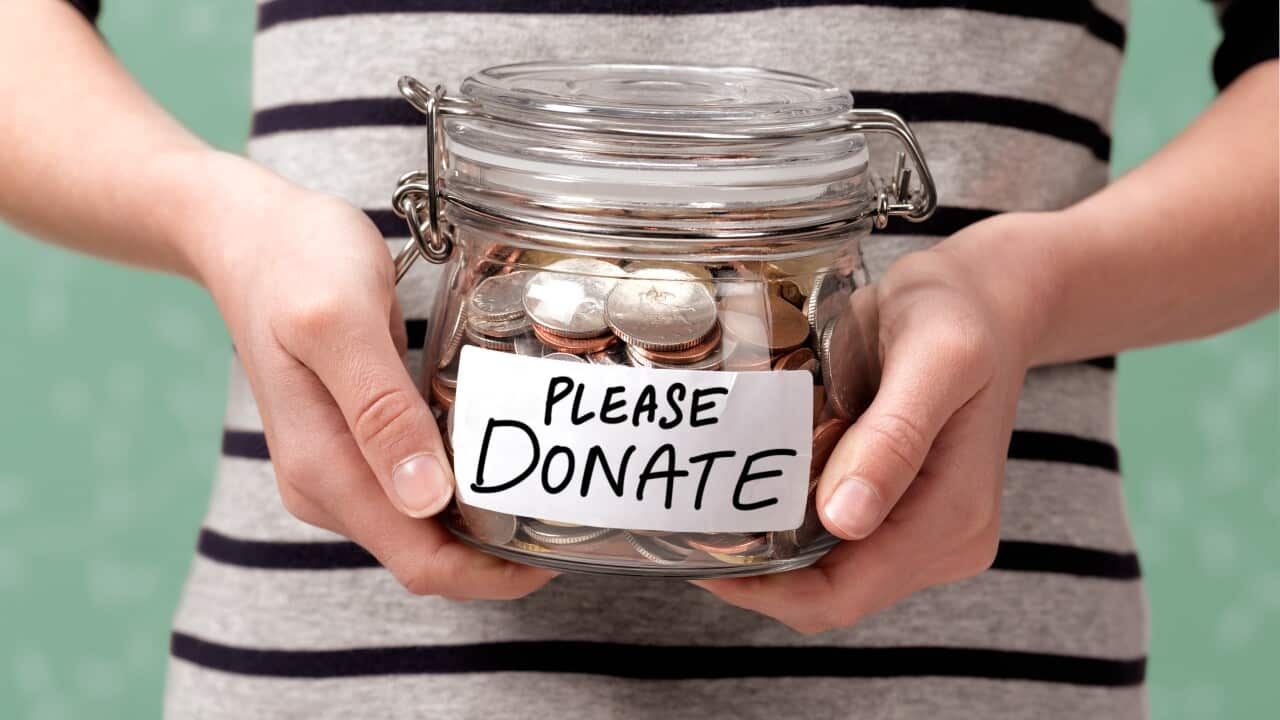TRANSCRIPT:
Official data reveals Australians are losing billions of dollars to scams.
And with many charities currently putting out calls for donations over the Christmas season, the national charity regulator is warning of scammers taking advantage of people's generosity through fake charity appeals.
Australian Charities and Not-for-profits Commissioner Sue Woodward urges caution to ensure donations are reaching those in need.
“We know that at this time of year, you know many charities are running their Christmas and festive appeals. And, you know, we would very much encourage that they deserve the support of the public in terms of donations and volunteering. But unfortunately, what happens at the same time is that we can sometimes see a rise in scammers, people trying to take advantage of, of generosity and take that money and not use it for the purpose that was given.”
The latest official data shows Australians lost $3.1 billion to scammers last year.
There were hundreds of reports of fake charity scams to Scamwatch, but Ms Woodward says the actual number is likely much higher.
“That we know is an under-reporting, and so the figure is likely to be much higher because people typically don't bother to report or are too embarrassed to report so it's a big figure and it's an issue that we're concerned about.”
Executive General Manager at the National Anti-Scam center at the ACCC Heidi Snell says fake charities account for a large portion of scams that are reported.
“This year we received 96 reports of fake charity scams, with losses of over $82,000. And one in particular that we saw was door knockers claiming to be from breast cancer Foundations in New South Wales and Victoria, when in fact they weren't. So we definitely do see these types of scams and so encourage consumers to to be particularly alert for them.”
James Roberts is the General Manager of Group Fraud Management at the Commonwealth Bank.
He says fake charity scams manipulate people's genuine concern for others in their community, as was the case during the Black Summer bushfires.
“Back in the bush fire time we had a lot of fake bush fire charities where it was actually scammers just preying upon Australians goodwill and willingness to, you know, help out a mate help our fellow Australian.”
Ms Snell says these scams have substantial financial and emotional consequences.
“Even scams that only involve losing a couple of hundred dollars can have a devastating effect on someone who, you know, is in a more financially precarious situation. And so then it's not only the loss of money but also the stress related to trying to pay bills when you've lost some money.”
However, Ms Woodward says the existence of fake charity scams shouldn't dissuade Australians from donating at a time of high need.
She says the ACNC's free online Charity Register is an easy way to check if a charity is legitimate.
"Charities need your support now more than ever, they're dealing with people who are struggling with the cost of living pressures and perhaps particularly so over. You know, the festive season the pressures are really high. But what we're urging you to do is just take this simple step of checking the register to try and make sure that your money goes where you wanted to be.”
The Charity Register lists 60,000 charities working across the country, and offers a break-down of key financial information, including who is running the charity, its total revenue and expenses and how much it relies on volunteers.
Ms Woodward says the safest way to make a donation is through the information on this register, rather than clicking on links or giving details over the phone.
She says anyone can be a victim of scamming, but some groups are especially vulnerable.
“We're all in a hurry. We all get, you know, texts from someone or social media posts that we, you know, touched by that we want to, you know, click on and donate, we get a phone call. So I think everyone's been in that situation. So I would say that this is a message for everyone. But, you know, of course if English is your second language, if you you know, are more vulnerable in any way then that can mean that there's a heightened risk of people in that category.”
Mr Roberts urges people to be vigilant and look at for a few telling signs.
“Scammers often prey on trying to get you to urgently respond to something without thinking it through. So the first step to stop and take a pause and breathe is particularly important, then kind of moving on to check. Think about it. Does the content look right? Does the link? Often the link doesn't look quite right, doesn't look like the genuine length, or the message isn't expected. Take your time to check.”
He says if you have been a victim of a scam, the first step is simple.
“The single most important thing to do is contact your bank, contact your bank, contact your bank. It's important to stop any further transactions coming out if they're unauthorised transactions. Or alternatively, if you've made the transactions yourself because you've been tricked into doing it by some scammer. the faster you call the bank, the more opportunity there is for that bank to freeze that money wherever it went to and recover it for you. So, singular piece of advice, contact the bank as soon as possible.”
Ms Snell says with scams often being so hard to detect, it is important for victims of scamming to contact Scam Watch to protect others in the community.
“Anyone can be caught by a scam. It doesn't mean that you've done something silly. They're really really sophisticated scammers these days and so they can catch anyone in it. And so we really encourage people. Don't be ashamed or embarrassed if you've been caught by a scam. But take the opportunity to tell your story, share it with your friends, share it with your family and report it to SCAMwatch so that no one else gets tricked by the same scam.”













